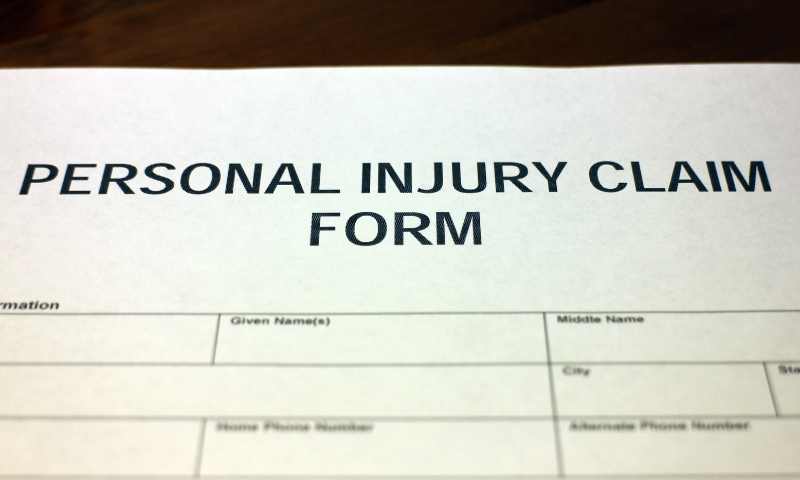What to Do If Your Personal Injury Claim Is Denied: Brooklyn’s Action Plan

Sustaining a personal injury can be a traumatic experience, and it’s only natural to want to seek compensation for the damages and losses you’ve incurred as a result.
However, sometimes personal injury claims are denied, leaving individuals feeling frustrated and helpless. If you find yourself in this situation, it’s important to know that there are steps you can take to appeal the decision or pursue other options for seeking compensation.
Don’t give up hope—read on to learn about your options and take the first steps toward getting the compensation you deserve.
Contact Held, Held & Held in Brooklyn today for a free consultation with an experienced personal injury attorney.
Why Personal Injury Claims Get Denied
Personal injury claims are often filed to seek compensation for damages and losses resulting from an accident or injury caused by someone else’s negligence or intentional act. However, it’s not uncommon for personal injury claims to be denied.
Here are some common reasons why personal injury claims may be rejected:
- Lack of evidence — To prove a personal injury claim, it’s important to provide evidence of the injury, its cause, and the damages incurred. Without sufficient evidence, a claim may be denied.
- Missed deadlines — Personal injury claims are subject to strict deadlines, and missing a deadline can result in a claim being denied. This can include deadlines for filing a claim, serving notice on the defendant, or filing an appeal.
- Pre-existing conditions — If the defendant can prove that the injury was caused by a pre-existing condition rather than their actions, the claim may be denied.
- Disputes over liability — If there is a dispute over who is at fault for the accident or injury, the claim may be denied or delayed until liability can be established.
- Failure to mitigate damages — Claimants have a duty to take reasonable steps to mitigate their damages, such as seeking medical treatment or returning to work if possible. Failure to do so can result in a claim being rejected.
Understanding the reasons why personal injury claims may be denied is important for taking appropriate steps to appeal or pursue other options for seeking compensation.
What to Do If Your Personal Injury Claim Is Denied
If your personal injury claim is denied, seek legal advice from a personal injury attorney to understand why your claim was denied and what your options are. You may be able to appeal the decision, negotiate a settlement, or file a lawsuit to seek compensation.
Remember to follow all deadlines and requirements for appeals or other legal actions, and keep copies of all documents and correspondence related to your case. An experienced personal injury attorney can guide you through the process and increase your chances of success.
How to Appeal a Denied Claim
Here’s how to appeal a denied claim:
- Review the denial letter. The first step is to review the denial letter carefully to understand why your claim was denied. This will help you determine what additional evidence or information you may need to submit.
- Gather additional evidence. Once you understand why your claim was denied, gather any additional evidence or information that supports your claim. This may include medical records, witness statements, or expert opinions.
- Submit an appeal letter. Write an appeal letter that explains why you believe your claim should not have been denied and provide any new evidence or information you have gathered. Make sure to follow all guidelines for submitting an appeal and meet all deadlines.
- Participate in mediation or arbitration. In some cases, the insurance company or defendant may offer mediation or arbitration as a way to resolve the dispute. This can be a less formal and less expensive alternative to going to court.
- Work with an attorney. Consider working with an experienced personal injury attorney who can guide you through the appeals process and represent you in negotiations or in court, if necessary.
Remember to stay organized and keep copies of all documents and correspondence related to your appeal. Following these steps can help increase your chances of successfully appealing a denied personal injury claim.
Contact Held, Held & Held Today
Receiving a denied personal injury claim can be a frustrating and emotional experience, but it’s important to know that you still have options for seeking compensation. Whether you choose to appeal the decision, negotiate a settlement, or file a lawsuit, it’s important to stay organized, follow all deadlines and requirements, and seek the guidance of an experienced personal injury attorney.
Understanding the reasons why personal injury claims may be denied and knowing how to respond can make all the difference in the outcome of your case. Remember, don’t give up hope if your personal injury claim is denied – take action and pursue the compensation you deserve.
Contact Held, Held & Held today to appeal your denied claim. Call today to schedule a free consultation.
